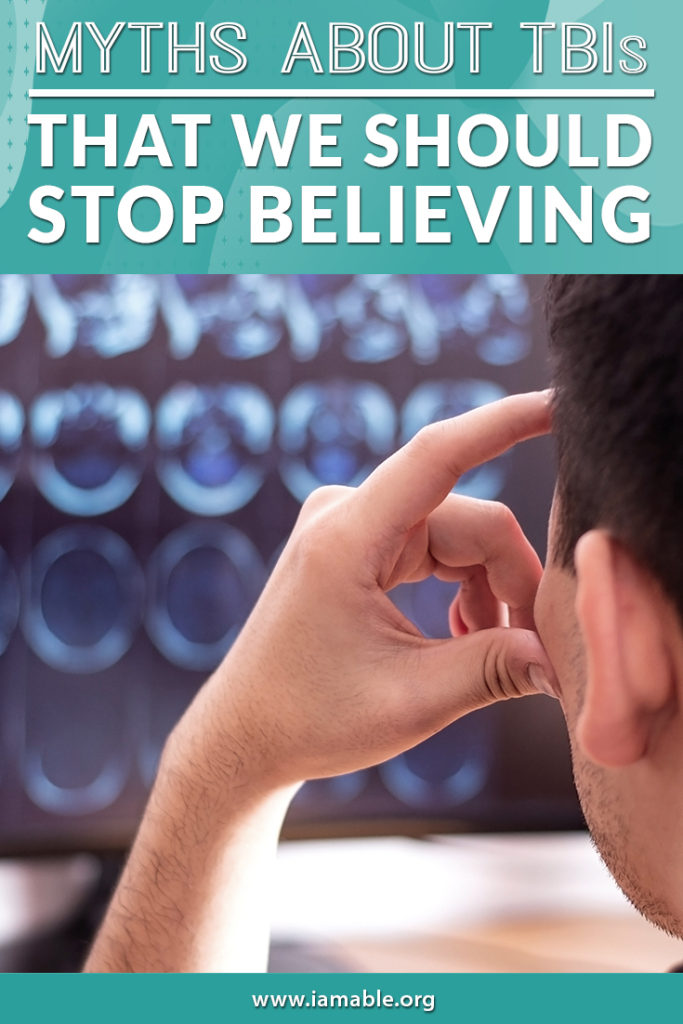Miami, FL 33186

TBI (traumatic brain injury) is a common problem in the US, and researchers work hard to help us learn as much as possible. This research is crucial to helping doctors and other medical professionals to assist patients recovering from a TBI. Unfortunately, there is a lot of misinformation on the Internet regarding TBIs. Some of it is simply outdated. So today, we will dispel some of the myths associated with traumatic brain injuries so that you can make informed decisions regarding your long-term care.
MRIs and CT scans are extremely useful tools when it comes to getting a medical diagnosis. However, they primarily detect skull fractures or brain bleeds. If your TBI did not cause one of these noticeable traumas, it wouldn’t appear on the scan. In fact, many concussions (considered a mild form of TBI) do not show up on a scan. So don’t fall for the idea that a clean scan means you did not experience a TBI. This is misguided thinking that comes from outdated information regarding how to diagnose traumatic brain injuries.
Sleep is actually crucial for TBI recovery, especially early on. The only reason to keep a person awake is if they have a brain bleed. If you go to the doctor and a medical professional clears you (usually using an MRI or CT scan), it is safe to sleep. Sleep gives the body the time it needs for optimal healing, especially when it comes to the brain.
The concern that leads to this myth is that stimuli could trigger symptoms. Therefore, a primary recommendation may be trigger avoidance. That means a lack of activity and reduced sensory stimuli. Unfortunately, researchers now understand that this can make matters worse.
Some researchers are even promoting a return to light, controlled activities in as little as 72 hours following an mTBI. Of course, you will want to make decisions regarding your exercise along with your doctor. As you begin your recovery, you may want to discuss the benefits of activity-based therapy with your healthcare practitioners. This is a form of treatment that involves repeated motions in an effort to retrain the brain and perhaps allow it to rewire following any damage due to the injury.
In the past, the understanding was that any remaining effects of a TBI that still exist two years after the injury are permanent. However, researchers now realize that this is not necessarily the case. While it is true that the vast majority of a person’s recovery will occur during the first nine months following an injury, after that it is all about your determination and the methods in place to help you recover. Don’t give up if your TBI is more than two years old. You may find that trying a different therapy is the solution.
An mTBI (or mild traumatic brain injury) is also known as a concussion. Throwing the designation mild in front of TBI for concussion gives the wrong idea. A concussion is still a brain injury. Are they usually non-life-threatening? Yes. Will most people recover from a concussion within two weeks of the damage? The answer is also yes. Unfortunately, some people will have lifelong symptoms that get ignored by medical professionals because the injury was “mild” and is, therefore, categorically dismissed. Close monitoring is crucial in the wake of a concussion and post-concussion syndrome (PCS) symptoms require immediate attention.
This is absolutely false. According to resources cited by the Brain Injury Association of America, 20% of TBI survivors will plan or attempt suicide within five years of the injury. What are the possible causes of this trend?
If your loved one is a TBI survivor, they may not recognize a trend in this direction or ask for help. If you notice anything off in the way your loved one is thinking or speaking following a TBI, it is essential to have an open conversation. You can direct your loved one to the suicide hotline if you feel they are at risk. That number is 1.800.273.8255.
If one result of your TBI is paralysis, it can make the recovery even longer and more arduous. To give you the mental stamina to embark on your recovery journey, read the eBook 7 Unbelievably Important Steps to Take to Thrive after Paralysis. You can find the motivation and encouragement that you need to meet the challenges of your injuries. You can still thrive after a TBI! Next, contact iAM Able in southern Florida to learn if our activity-based therapy is the solution you need in order to continue making progress in your recovery. Remember that finding the right treatment is crucial to continuing recovery, even two years or longer after the trauma. Call iAM ABLE today at 305.283.9717 to learn more.
Grab our free e-book 7 Unbelievably Important Steps to Take to THRIVE after Paralysis by clicking the image below.
